|
The very best thing you can do is educate yourself as much as possible. Do NOT take advice from people that may or may not be qualified to give you that type of guidance or advice. ALWAYS know you are getting credible information from a trusted source. There is sooooooo much inaccurate information being passed around, so we thought we would try and present some of the facts we know to be true that has seemed to cause an abundance of confusion. I have told this story before, but not on the blog. When I had ZERO pig knowledge and ran out to buy a pig because I was selfish and didn't think it would be hard to care for a pig, I noticed these "holes" in my pigs legs. I IMMEDIATELY called my vet who was out of town, so a partner saw my pig. She agreed, it looked bad, possibly a parasite, a flesh eating bacteria, but felt confident in prescribing me an antibiotic and some antibiotic cream for these "abscesses". Needless to say, when my vet arrived back to the office and saw my pig was seen, he was kind enough to fill me in that they weren't "holes", not parasites, no flesh eating bacteria, but instead scent glands. That was definitely an expensive lesson to find out they were a normal part of the anatomy. Click here to learn more about scent glands. In a pigs natural environment, they are able to forage around for food, pee in a stream and build a nest of sticks and leaves and can survive a long time doing this. We cannot expect an animal with naturally wild instincts to be good and act the way WE want them too ALL the time. It isn't going to happen. We can't make our pigs smaller, so we have to build bigger indoor enclosures, buy new fashionable pig clothes, bigger water and food bowls, reinforce weak or damaged fencing. Why you ask? Because you have committed to this pig for potentially 20+ years and as your pig grows, you will have to modify everything to make sure your pig is safe and secure. Yes, pigs DO shed. Pigs are NOT hypoallergenic as some may say and people CAN be allergic to their pig. It isn't common, but it does happen. We have a blog as well as a page dedicated to pig halitosis. Some pigs have HORRIBLE breath while others simply isn't that bad. There are a variety of things that could be going on, but based on my experience, this pocket of goop is what has caused the foul breath. Click here to read more about tusk care/dental care in pigs. Yes, female pigs also get tusks. Most female pigs do NOT have big giant tusks like the males do, however, there are always exceptions. There are a lot of people who have no idea which is why we are adding it here. Pigs NEED outside time. Pigs who are exclusively kept indoors can suffer from Vitamin D deficiencies and boredom. Bored pigs are often destructive pigs. Click here to read more about enrichment for your pig. Pigs and dogs are natural enemies. I do not care how sweet your dog is, honestly, size isn't of significant importance when a piglet goes into a home with a dog. We see people posting daily on social media that their pig was attacked by the family dog. We warn as many people as possible. It doesn't matter if you are standing right there with them, it can and does happen all the time. 5 seconds is all it takes for your dog to get his/her powerful jaw around a pig's neck and your pig could die as a result. Please do not leave the two unattended. Click here to read more about the dangers. Not every pig roots and causes complete destruction in the yard, but some do. If a perfect yard is in your plans, you will need to set aside an area for your pig with secure fencing (because the grass is always greener on the other side) to keep your pig contained to that particular area. Pigs have a great sense of smell, on top of that, they are extremely curious and like to dig around to find buried treasures that may be hidden in the soil. When pigs are not given the opportunity to go outside and root and play, they can often become destructive IN the house. A fenced in yard is a must for a pig parent. This is not only to keep your pig in your yard, but also to keep predators out. Click here if you need some ideas for outside containment. We have pages for indoor pens as well as outdoor houses and fencing. Having a vet that sees pigs is a step in the right direction, having a vet that specializes in pigs is like hitting the lottery. There aren't many out there. It is super important to have a vet lined up, that's knowledgable about pigs, before your pig gets sick or injured. There isn't a worse feeling than knowing your pig needs to be treated, but you cannot find a vet to help. We have a list of vets that have been confirmed over the last couple of years who have said they will see pigs. Not all specialize in pigs and some are limited in what they can provide, so you will need to call and find out what their particular policies are with regards to pigs as patients. You can click here to view our vet map. We also have a general health form that you can download (click here to go to the general health page) and use should your pig become ill to help you with details you might not think is relevant, but your vet will be grateful to have. Aside from sickness or injury, a vet may be needed for vaccinations, general questions about your pig or routine care like hoof or tusk trims. Always have a back up plan, matter of fact, have back up plans for back up plans. Piglets tend to do "ok" with stairs, but...as your pig grows older and wiser and bigger and heavier, they tend to have issues with stairs/steps. It is best to set your pig up with success by having an alternative solution ready to put into action, such as a ramp. Click here for our page that discusses this. We preach this day in and day out. ALL pigs grow. The ones that do stay piglet sized (and there is only a handful that I am aware of) will likely never see their 5th birthday sadly enough. Some people are truly ignorant to the fact they're being told to basically starve a pig to stunt the growth while others know exactly what they're doing. Nonetheless, we wanted to make sure everyone knew there are no "teacup", "micro", "micro mini", "nano", "pocket sized", "apartment", "pygmy", "dandie" or any other made up misleading descriptive term to elude to one person over another having "smaller" pigs. Click here to see our page regarding this MYTH. Checking the rules/laws/ordinances regarding pigs, in the area you live, can save a lot of heartache. Not all cities welcome pigs with open arms. Much like everyone who does add a pig to the family, it takes time to learn about them. Most people have never even seen a pig in person, much less thought about a pig as a companion pet. There has been a lot of success with people have ordinances amended to allow potbellied pigs to reside within city limits, but those people have worked hard to make that happen. We put together a packet of information to help guide you on that journey if you choose to tackle that. I have found that most cities are willing to listen to the information and typically have some follow up questions, but in a lot of those cases, the decision to allow pigs was the outcome. YOU will need to do some work to make your case and show your city/town/county why you feel pigs should be allowed. Click here to view our page and packet of information that can be useful to you if you are fighting to keep your pig or you want to establish or change an outdated ordinance. No explanation needed.
Naturally we will add more to this page as the day goes on and time permits....What do you feel needs clarification? Send us an email at [email protected] or message us on our Facebook page. We are certainly open to suggestions, but wanted to present these "truths" in a creative way.
13 Comments
|
AuthorsBrittany Sawyer Archives
July 2019
Categories
All
|
-
- Direct Links To Website Content
- Read BEFORE You Add A Pig To Your Family
- Mini Pig Info Mission
- Teacup/Micro Pig Myth
- What Is A Mini Pig?
- Mini Pig Breeds: Which Ones Are Really Breeds?
- Adoptable Mini Pigs
- Are You As Smart As Your Pig?
- Mini Pig Info Education Series
- Social Media Feeds
- Zoonotic Diseases & Mini Pigs
- Mini Pigs Are NOT Gifts!
- Media/News Links
-
- Pig Health Forms: Tools To Use To Determine If Your Pig Is Sick
-
- Mini Pigs & Erysipelas: Life Saving Info About This Disease
- Dippity Pig Syndrome In Mini Pigs
- Mini Pig Salt Toxicity/Water Deprivation
- Leptospirosis In Mini Pigs
- Swine Pox & Mini Pigs
- Gastric Ulcers: Common Problem For Mini Pigs
- Brucellosis And Mini Pigs
- Mini Pig Pneumonia & Swine Flu
- Foot and Mouth Disease (FMD): A Problem For Pigs In Other Countires
- Pseudorabies: Is My Mini Pig At Risk?
- Mycoplasma Hyosynoviae & Mini Pigs
- Head Tilt In Mini Pigs
- Mini Pig Obstructions: How To Reduce The Risk For Your Pig
- Seizures In Mini Pigs
- Mini Pig Salmonellosis
- PSS (Porcine Stress Syndrome)
- Urinary Tract Infections (UTI) In Mini Pigs
- Urinary Blockages: A Serious Problem For Mini Pigs
- Arthritis And Mini Pigs
- Mini Pig Artophic Rhinitis
- Mini Pig Heart Disease Possibilities
- Common Mini Pig Gastrointestinal Disorders
- Mini Pigs & Pasteurellosis
- Mini Pigs And Rabies
- Mini Pig Genetic Abnormalities
- MIni Pigs & Cancer
- Mini Pig Cough
- Causes For Sudden Death In Mini Pigs
-
- Mini Pig Approved Foods
- Natural Diet For Mini Pigs: How To Create A All-Natural Diet For Your Pig
- Balancing Your Mini Pigs Diet With Activity
- Mini Pig Feed Concerns: Bad/Spoiled Feed
- Mini Pig Nutritional Deficiencies
- How To Estimate A Pigs Weight Without A Scale
- Mini Pig Body Scoring: What Does An Unhealthy Mini Pig Look Like?
- How To Help Your Mini Pig Lose Weight
- Mini Pig Treats And Recipes
- Mini Pig Hydration: The Importance Of Water
-
- Mini Pig CPR/Heimlich Manuever
- Mini Pig Constipation
- How To Treat A Vomiting Mini Pig
- What To Do If Your Mini Pig Gorges On Food?
- Salt Toxicity/Water Deprivation In Mini Pigs
- How To Treat A Fever In Mini Pigs
- Basic Wound Care For Mini Pigs
- Acute Mini Pig Paralysis
- Mini Pig Shock
- What To Do If Your Mini Pig Sustains A Fracture?
- Treatment For Mini Pig Diarrhea
- Hidden Dangers For Mini Pigs: Snakes & Spiders
- Mini Pig Emergency Supplies
- Most Common Mini Pig Problems
-
- Underaged Piglets- The Dangers & Amount Of Care Involved
- How To Estimate The Age Of A Mini Pig
- Mini Pigs and Dogs- Predator Versus Prey- A Risky Combination
- Mini Pig Name Suggestions
- Bathing Mini Pigs
- Mini Pig Travel Regulations
- Mini Pig FAQ
- "Forking" Mini Pigs- No, We Aren't Talking About Eating!
- Mini Pig Potty Training Tips
- Pigs And Stairs: A Potentially Flawed Living Arrangement
- Capturing A Mini Pig On The Loose
- Indoor Mini Pig Spaces
-
-
- Mini Pig Sounds 101
- Mini Pig Harness Training
- Important Information & Tips For Training Your Mini Pig
- Teaching Your Pig To Do Tricks
- Decoding Mini Pig Behavioral Problems
- Mini Pig Behavior: A Quick Introduction
- Common Behavioral Issues In Mini Pigs
- Move The Pig By Lydia Weaver
- Food Aggression In Mini Pigs
- Aggressive Mini Pigs
- Spoiled Pig Syndrome
- ESA (Emotional Support Animals)/Therapy Pets And Service Animals: What Applies To My Mini Pig?
- Mini Pigs Can Be Fun: Training Your Pig Is Key!
-
- Mini Pig Themed Greeting Cards
- Mini Pig DIY Items: Ideas & Inspiration
- Mini Pig Community Chat Forum
- The Loss Of Your Mini Pig
- Website Survey & Various MPI Video Collection
- Mini Pig Research/News Links
- PAL (Pig Advocates League): Our Nonprofit Sister Organization
- Kids Corner: Mini Pig Items For Kids
- Mini Pig Meme's:
- Mini Pig Sitters
- Mini Pig Outreach-Educational Information
- Community Groups For Mini Pig Parents
- "Pigtionary"
- Pig Anatomy and Terminology
- Mini Pig Info Store
- Dear Pig Whisperers Blog
-
- Direct Links To Website Content
- Read BEFORE You Add A Pig To Your Family
- Mini Pig Info Mission
- Teacup/Micro Pig Myth
- What Is A Mini Pig?
- Mini Pig Breeds: Which Ones Are Really Breeds?
- Adoptable Mini Pigs
- Are You As Smart As Your Pig?
- Mini Pig Info Education Series
- Social Media Feeds
- Zoonotic Diseases & Mini Pigs
- Mini Pigs Are NOT Gifts!
- Media/News Links
-
- Pig Health Forms: Tools To Use To Determine If Your Pig Is Sick
-
- Mini Pigs & Erysipelas: Life Saving Info About This Disease
- Dippity Pig Syndrome In Mini Pigs
- Mini Pig Salt Toxicity/Water Deprivation
- Leptospirosis In Mini Pigs
- Swine Pox & Mini Pigs
- Gastric Ulcers: Common Problem For Mini Pigs
- Brucellosis And Mini Pigs
- Mini Pig Pneumonia & Swine Flu
- Foot and Mouth Disease (FMD): A Problem For Pigs In Other Countires
- Pseudorabies: Is My Mini Pig At Risk?
- Mycoplasma Hyosynoviae & Mini Pigs
- Head Tilt In Mini Pigs
- Mini Pig Obstructions: How To Reduce The Risk For Your Pig
- Seizures In Mini Pigs
- Mini Pig Salmonellosis
- PSS (Porcine Stress Syndrome)
- Urinary Tract Infections (UTI) In Mini Pigs
- Urinary Blockages: A Serious Problem For Mini Pigs
- Arthritis And Mini Pigs
- Mini Pig Artophic Rhinitis
- Mini Pig Heart Disease Possibilities
- Common Mini Pig Gastrointestinal Disorders
- Mini Pigs & Pasteurellosis
- Mini Pigs And Rabies
- Mini Pig Genetic Abnormalities
- MIni Pigs & Cancer
- Mini Pig Cough
- Causes For Sudden Death In Mini Pigs
-
- Mini Pig Approved Foods
- Natural Diet For Mini Pigs: How To Create A All-Natural Diet For Your Pig
- Balancing Your Mini Pigs Diet With Activity
- Mini Pig Feed Concerns: Bad/Spoiled Feed
- Mini Pig Nutritional Deficiencies
- How To Estimate A Pigs Weight Without A Scale
- Mini Pig Body Scoring: What Does An Unhealthy Mini Pig Look Like?
- How To Help Your Mini Pig Lose Weight
- Mini Pig Treats And Recipes
- Mini Pig Hydration: The Importance Of Water
-
- Mini Pig CPR/Heimlich Manuever
- Mini Pig Constipation
- How To Treat A Vomiting Mini Pig
- What To Do If Your Mini Pig Gorges On Food?
- Salt Toxicity/Water Deprivation In Mini Pigs
- How To Treat A Fever In Mini Pigs
- Basic Wound Care For Mini Pigs
- Acute Mini Pig Paralysis
- Mini Pig Shock
- What To Do If Your Mini Pig Sustains A Fracture?
- Treatment For Mini Pig Diarrhea
- Hidden Dangers For Mini Pigs: Snakes & Spiders
- Mini Pig Emergency Supplies
- Most Common Mini Pig Problems
-
- Underaged Piglets- The Dangers & Amount Of Care Involved
- How To Estimate The Age Of A Mini Pig
- Mini Pigs and Dogs- Predator Versus Prey- A Risky Combination
- Mini Pig Name Suggestions
- Bathing Mini Pigs
- Mini Pig Travel Regulations
- Mini Pig FAQ
- "Forking" Mini Pigs- No, We Aren't Talking About Eating!
- Mini Pig Potty Training Tips
- Pigs And Stairs: A Potentially Flawed Living Arrangement
- Capturing A Mini Pig On The Loose
- Indoor Mini Pig Spaces
-
-
- Mini Pig Sounds 101
- Mini Pig Harness Training
- Important Information & Tips For Training Your Mini Pig
- Teaching Your Pig To Do Tricks
- Decoding Mini Pig Behavioral Problems
- Mini Pig Behavior: A Quick Introduction
- Common Behavioral Issues In Mini Pigs
- Move The Pig By Lydia Weaver
- Food Aggression In Mini Pigs
- Aggressive Mini Pigs
- Spoiled Pig Syndrome
- ESA (Emotional Support Animals)/Therapy Pets And Service Animals: What Applies To My Mini Pig?
- Mini Pigs Can Be Fun: Training Your Pig Is Key!
-
- Mini Pig Themed Greeting Cards
- Mini Pig DIY Items: Ideas & Inspiration
- Mini Pig Community Chat Forum
- The Loss Of Your Mini Pig
- Website Survey & Various MPI Video Collection
- Mini Pig Research/News Links
- PAL (Pig Advocates League): Our Nonprofit Sister Organization
- Kids Corner: Mini Pig Items For Kids
- Mini Pig Meme's:
- Mini Pig Sitters
- Mini Pig Outreach-Educational Information
- Community Groups For Mini Pig Parents
- "Pigtionary"
- Pig Anatomy and Terminology
- Mini Pig Info Store
- Dear Pig Whisperers Blog

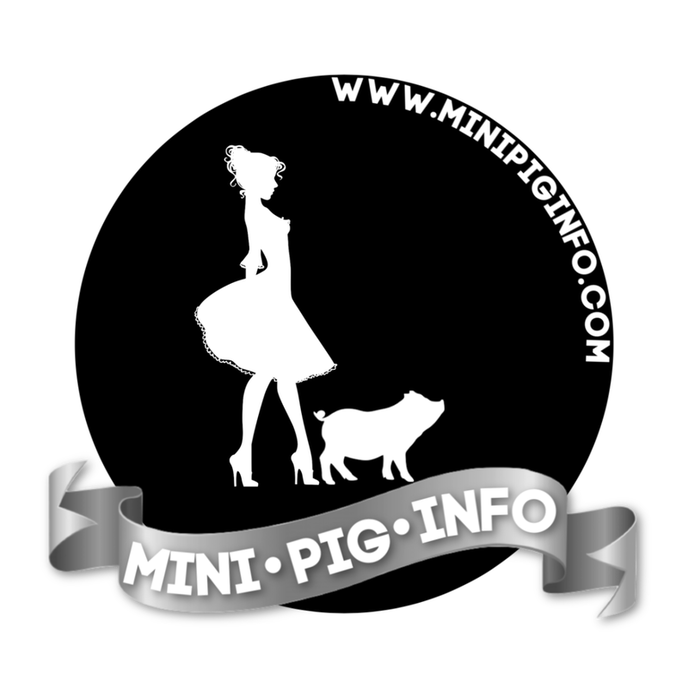
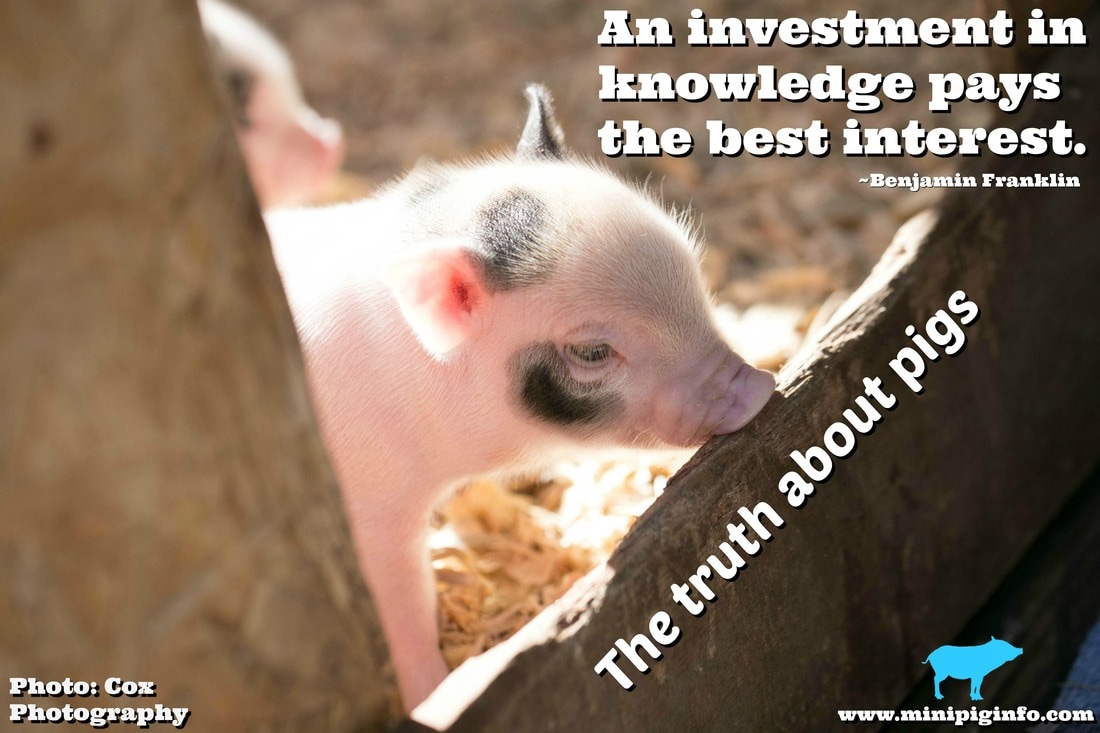
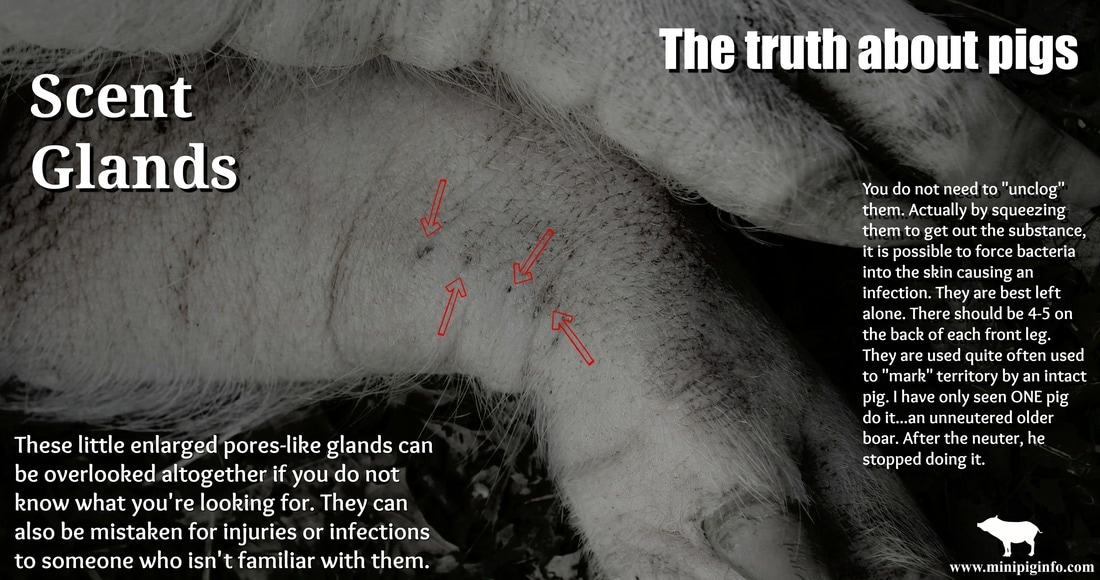
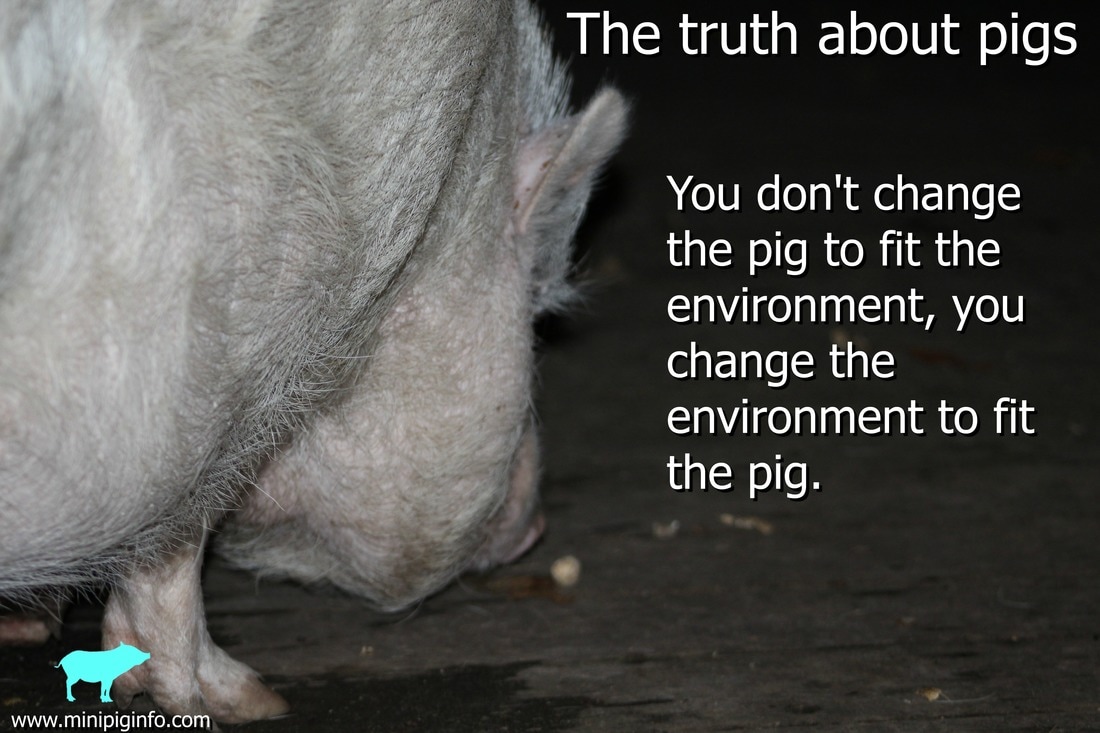
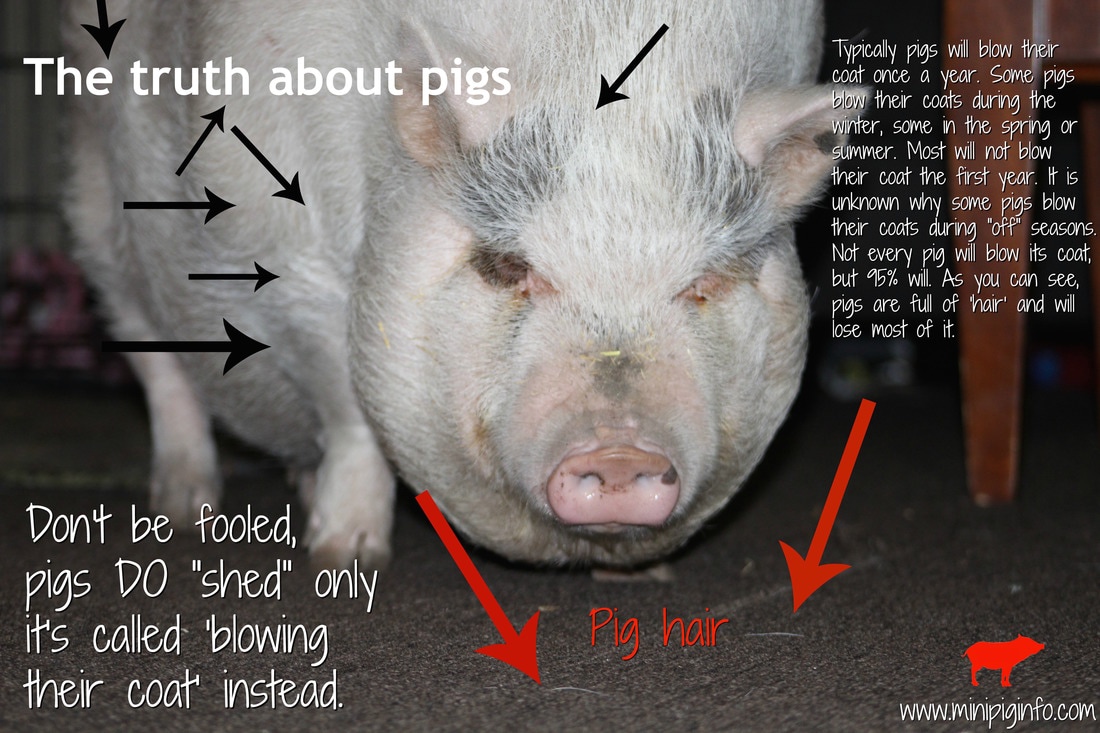
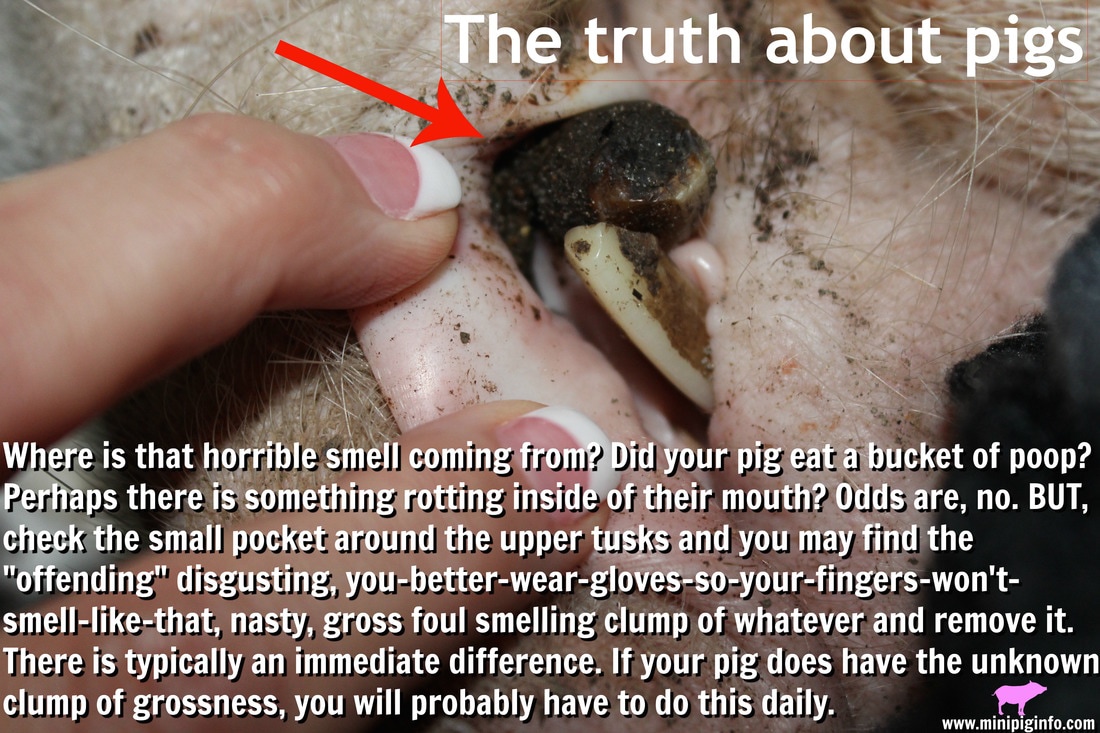
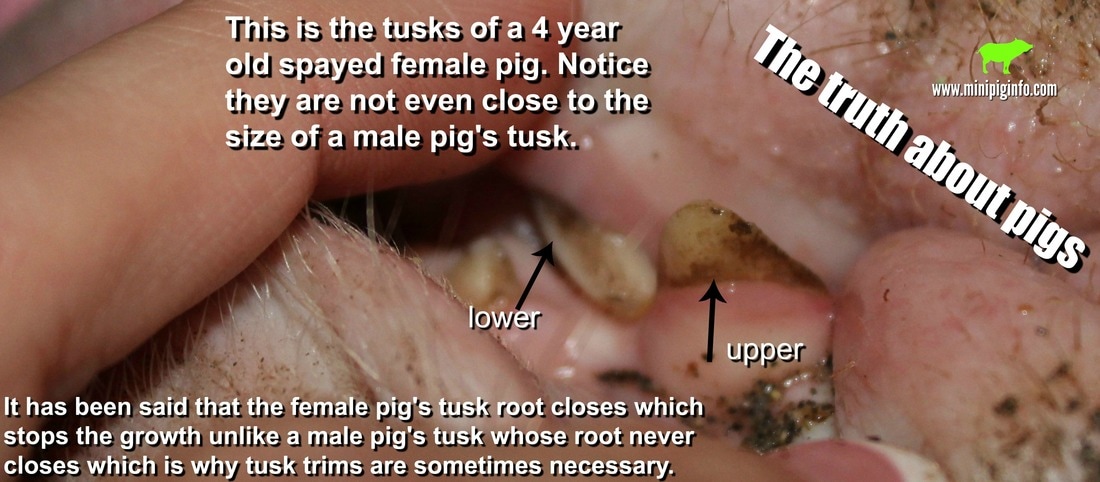
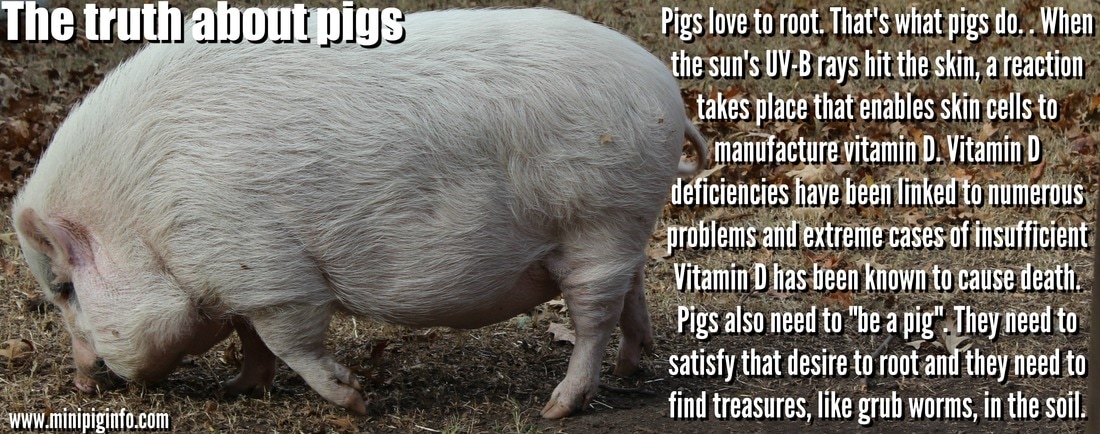
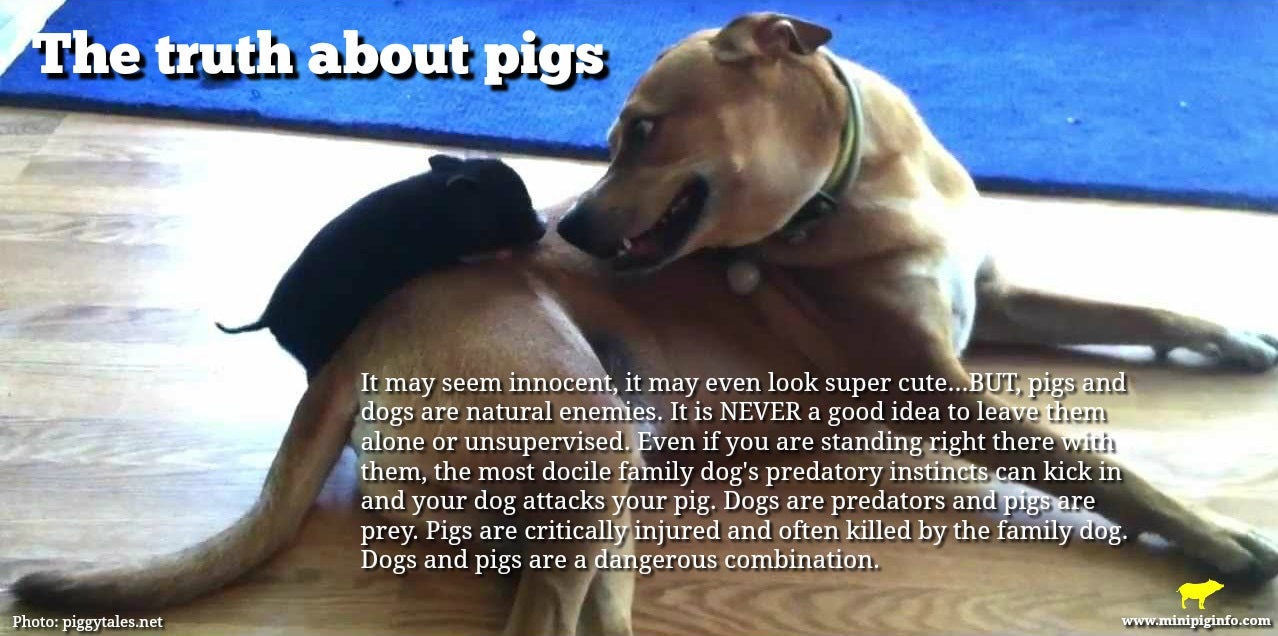
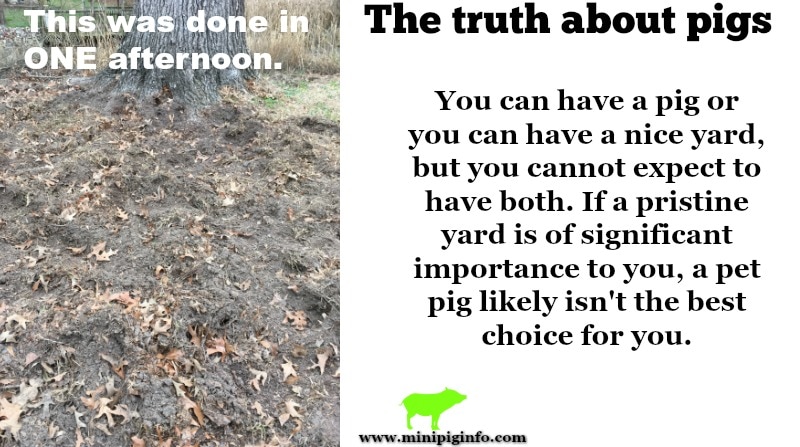
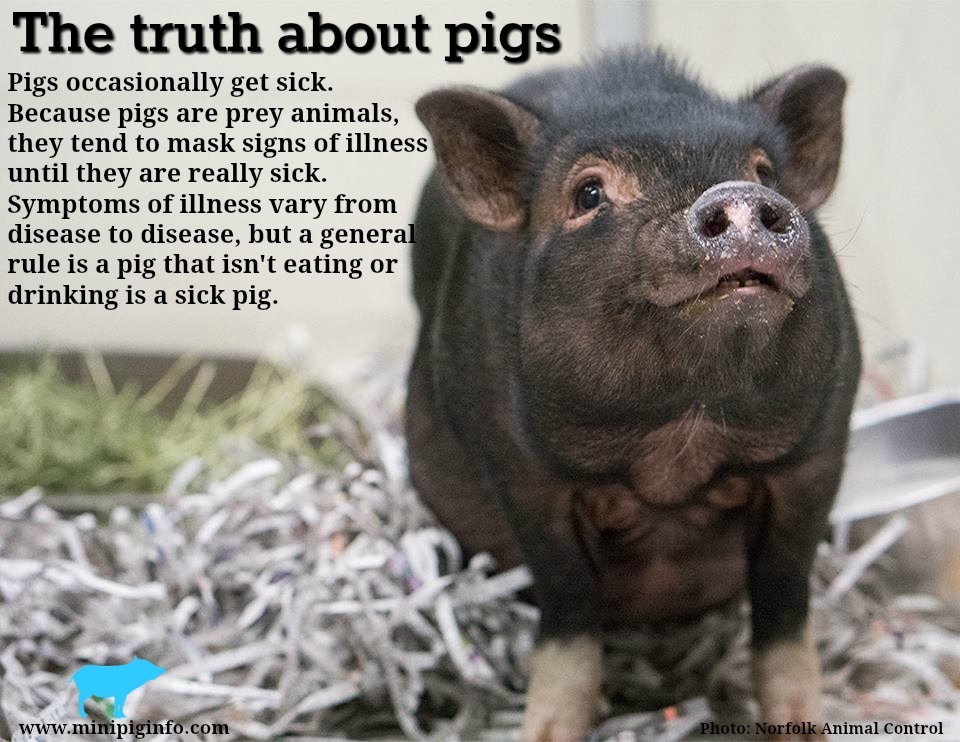
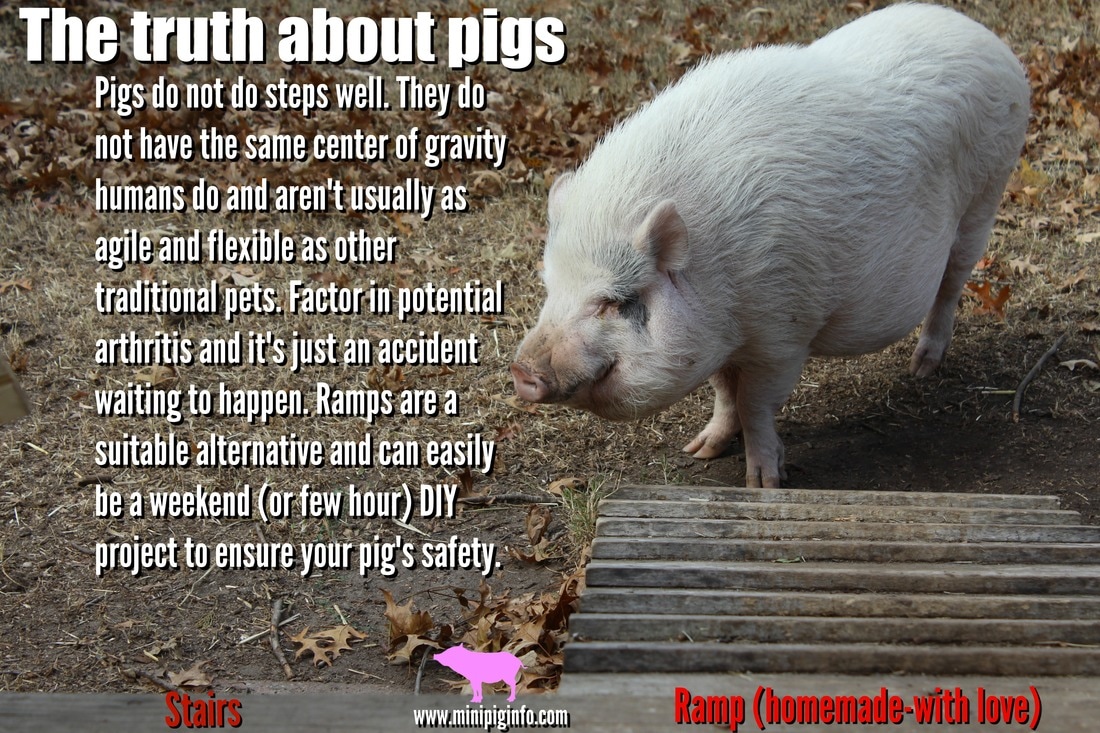
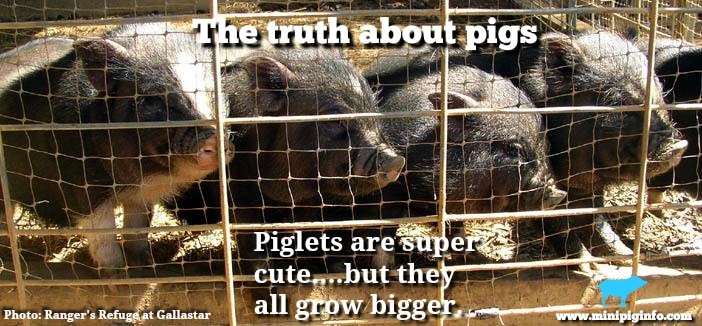
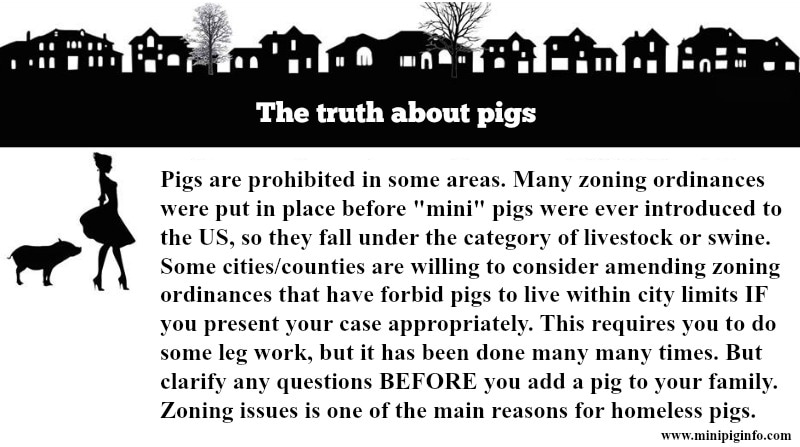
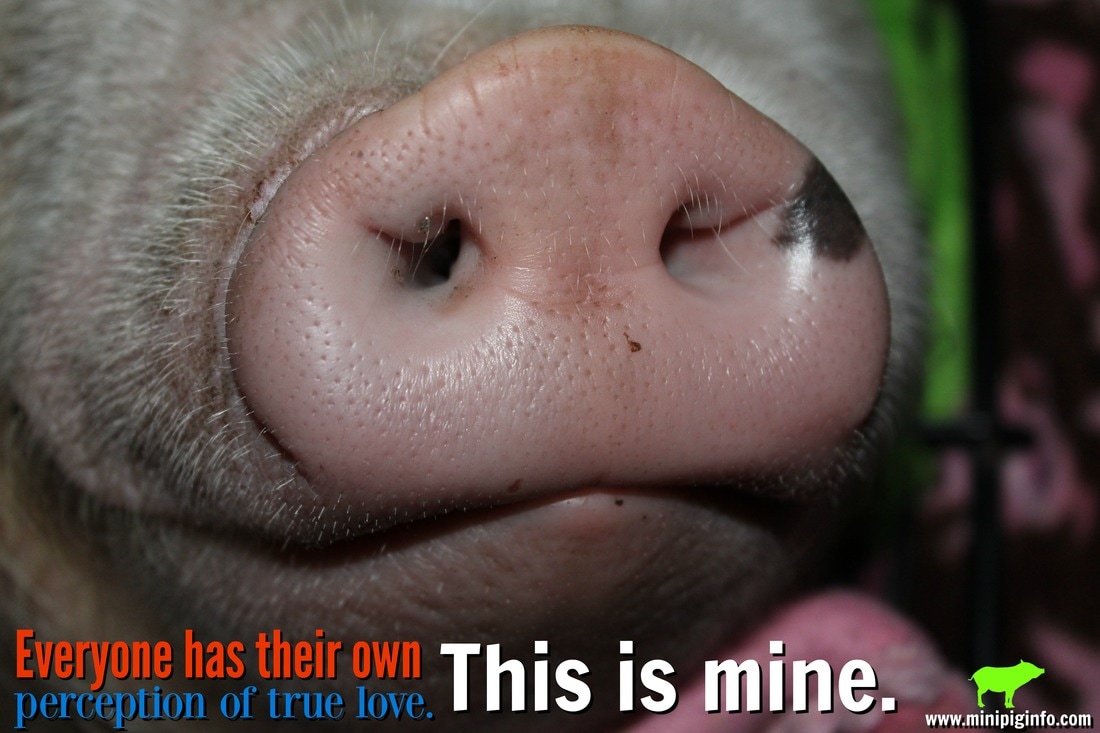


 RSS Feed
RSS Feed